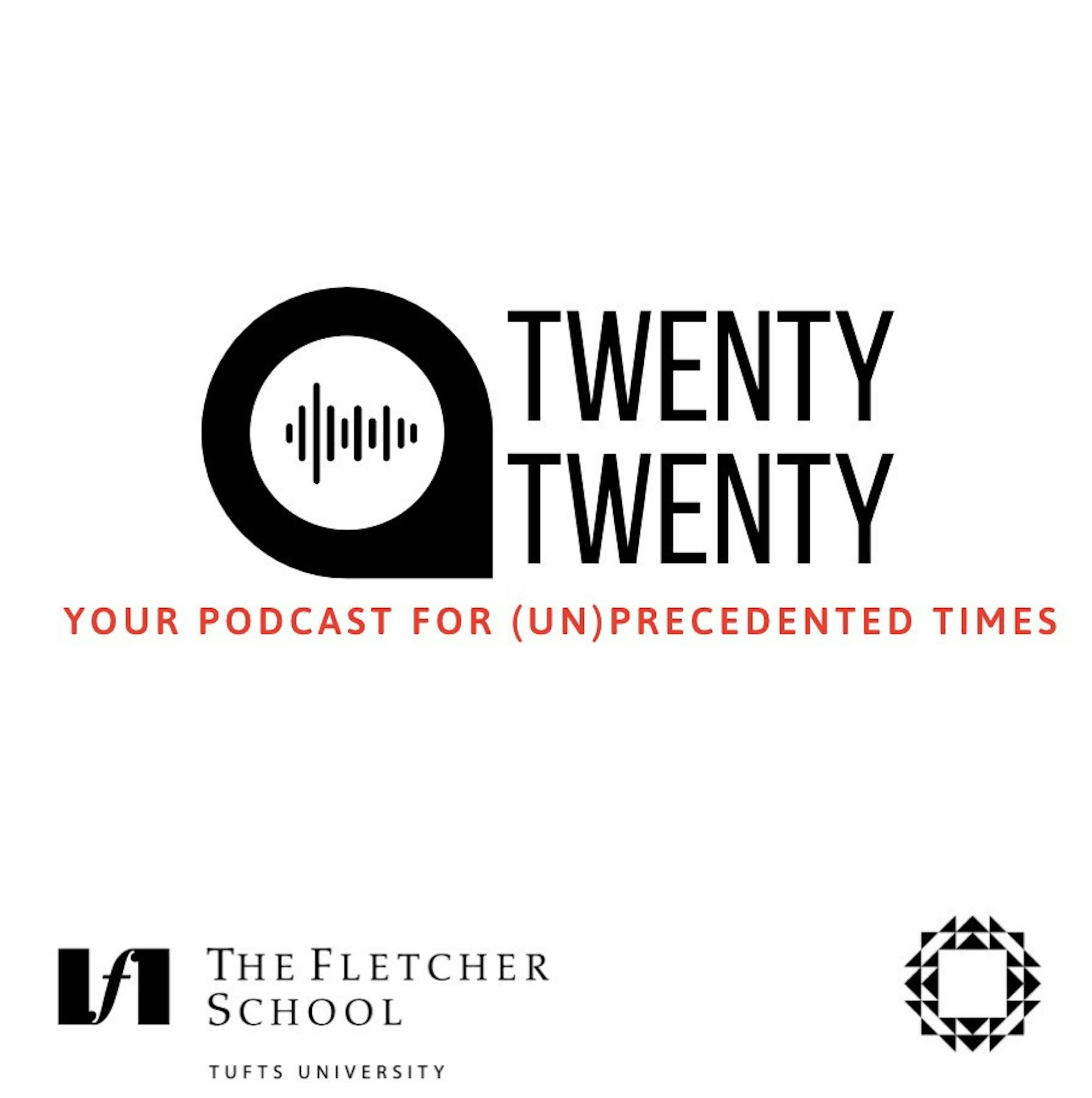With the emergence of podcasts as an effective, enjoyable way to get a message across, the thought of creating your own has probably crossed your mind once or twice. But what is the process really like? It’s more than just recording what you have to say and posting it online; podcasts require immense effort, time and dedication to tell informative stories in a way that resonates with others. Now, imagine creating your own podcast during a pandemic, aboutthe pandemic and its impact on foreign policy. That is just what the creators of'TwentyTwenty' set out to do, and their work communicates a message that allows us to shift our perspectives to something bigger than just our own quarantine experiences.
Elizabeth Dykstra-McCarthy, a student at The Fletcher School seeking a Master of Arts in Law and Diplomacy with an environmental policy focus, as well as the executive producer and host of the podcast, first got the idea for 'TwentyTwenty' during lockdown.
"I was having a conversation with a friend during lockdown about what we felt the biggest global challenges were and we started outlining [them]. Those have been the episodes,” Dykstra-McCarthy said.
After asking Max Klaver, a fellow Fletcher student seeking a Master of Arts in Law and Diplomacy with a focus on global political economy and Latin American politics, for suggestions, he introduced her toForeign Brief, a geopolitical risk analysis organization, to help start the podcast. Klaver is now associate producer of the podcast.
The goal for producers Dykstra-McCarthy and Klaver was to break down the impact of the pandemic on global trends and other challenges around the world that may often be forgotten. According to Klaver, the name comes not only from the year the COVID-19 pandemic overwhelmed the United States, but also from trends that have always existed.
"These issues have been around for decades generally, rather than just this year. The pandemic has accelerated them, and so it’s more of a catalyst turning point rather than something that just happened this year," Dykstra-McCarthy said. “The pandemic alone is really just one facet of many other ways in which the world has changed.”
Some of the relevant topics discussed include authoritarian governments’ attempts to consolidate power throughout lockdown, themes of corruption and exploitation, fiscal responses and debt crises, cybersecurity in this period of virtualization and more. The podcast aims to not only bring awareness to these issues, but also provoke listeners to think about what they can learn from this pandemic and how they can move forward.
“I want people to not only take away what kind of short, medium, and long-term implications that the COVID-19 pandemic has had on all this myriad of issues, but also thinking of things in a critical way beyond purely speculating,” Klaver said. “This is a really critical juncture in history ... we also need to accept that the pre-pandemic world is over and not coming back. It is only when we recognize that, that we can move forward and make actual progress on so many of these issues talked about in the podcast series.”
Bringing a podcast of this magnitude to fruition is no easy feat. According to the producers, creating an episode requires a lot of work. After choosing a topic and its angle, they meet with a team of researchers who start compiling information, formulating questions and searching for potential interviewees. Once an interviewee has been selected, an interview is recorded over Zoom. From the interview, a more coherent script with an introduction, transitions, and a conclusion is developed. The recordings are then edited and condensed to craft a stronger narrative. After several rounds of reviewing and editing, the episode is published. While the process is labor-intensive, the team has seen improvements in efficiency.
“This has been a solid six months of work for eight episodes,” Dykstra-McCarthy said. “We've gotten so much better during the process and we can now turn episodes out in two to three weeks in a way that we couldn't at the beginning."
The 'TwentyTwenty' Fletcher team continues to work tirelessly to relay a plethora of complex events so viewers of any background can widen their perspectives on the pandemic. This thought-provoking podcast is something that any individual can listen to and learn something from.
“As a not-IR person who mostly thinks of the pandemic in a limited scope … it’s super interesting to hear people talk about the nuanced ways in which the pandemic has quite literally affected every single aspect of our lives and the lives of people everywhere around the world,”Rachel Carp, a studio assistant for the podcast, said. “You realize how much damage this pandemic has done on a global scale.”
While it may not be easy to hear about all of the ways in which this pandemic has changed our way of life, the producers provide a sense of hope for the future that can often be lost during these times. They hope that the podcast will be an engaging, informative experience that allows others to think about an event of this scale in a more positive light by focusing on tangible solutions.
“Hand in hand with that is that we have the tools at our disposal to solve these kinds of problems,”Dykstra-McCarthy said.“We have the capability, it’s simply the political will. And we touch on that in almost every episode, which is that these things exist, they’re out there. It’s simply the way we use them that will change the foreseeable future.”






